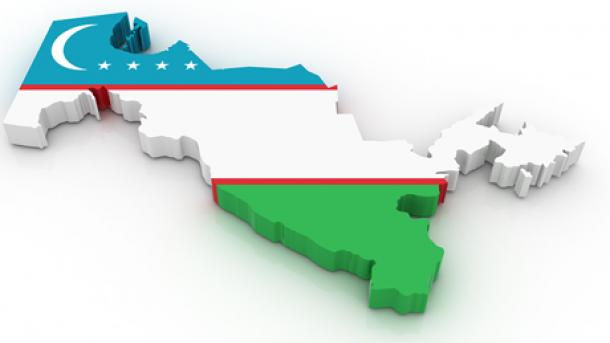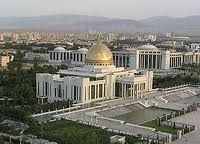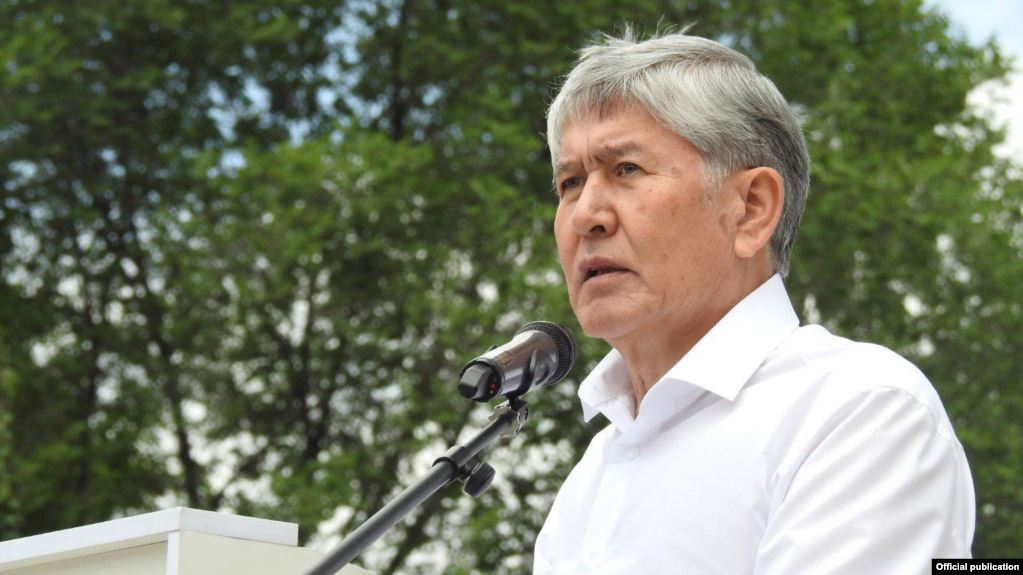TASHKENT (TCA) — This week’s removal of the powerful and longtime security services chief from his post in Uzbekistan has caused hopes that the Soviet- and Karimov-era repressive policies will finally come to an end. It remains to be seen, however, if the move was just the sidelining of a strong political figure or a decisive step to advance real reforms in the country. We are republishing this article on the issue, originally published by Eurasianet:
The morning in Uzbekistan began, fittingly enough, with an earthquake. But the slight seismological activity registered on January 31 was as nothing compared to the developments playing out at the headquarters of the National Security Services (SNB).
This week, Rustam Inoyatov, the 73-year old, long-time powerful head of the security services, was allowed to resign his post. The tricksy official formulation masked that Inoyatov had in fact been fired after more than two decades of running an agency responsible for mounting an unrelenting campaign of repression against Uzbekistan’s population.
“Inoyatov … will go down in history as one of the most ruthless figures in all of the post-Soviet space, responsible for constructing among the most fearsome and formidable security services agencies in the whole region,” Steve Swerdlow, Central Asia researcher for Human Rights Watch, told Eurasianet. “Inoyatov is closely and personally associated with the worst human rights abuses over the past 22 years, including the imprisonment of thousands of persons on politically motivated charges, the wide-ranging use of torture in places of detention, and the Andijan massacre of hundreds of largely peaceful demonstrators in 2005.”
Alexey Malashenko, formerly with the Carnegie Moscow Center, once memorably described Inoyatov as the “last Stalinist politician among the country’s elite.”
The new head of the SNB, as the body is known in its Russian-language acronym, has been named as 52-year old Ikhtiyor Abdullayev. The outgoing General Prosecutor will become the first SNB chairman not to be a career security services agent, although it did sometimes happen in Soviet days that local KGB chiefs were drawn from the ranks of the Communist Party.
In keeping with his training as a lawyer, Abdullayev’s first major task will be to help implement the instructions of reformist President Shavkat Mirziyoyev, who demanded in December that legislation finally be adopted to properly detail the responsibilities of the SNB. The security services of Uzbekistan have since independence literally operated outside the law.
Tashkent-based analyst Bakhtiyor Ergashev was effusive about Inoyatov’s removal, calling it the end of the transition from the era of the late President Islam Karimov to the current system.
“Uzbekistan has created a tradition for the peaceful and evolutionary change of power in Central Asia,” Ergashev told Eurasianet, adding that he believed the incoming elite was capable of favoring national interests over those of narrow circles close to power. “This serves as an example for the countries and elites of the region.”
Under Karimov, who died in September 2016, the SNB operated as a state within a state. It ostensibly served as a bulwark against threats to stability, which in the reading of the authorities included dissidents and devout Muslims, as well as terrorists and other serious criminals. As it expanded from the bare bones structure left behind by the Uzbek SSR’s KGB, the SNB came to have its own armed forces, national guard and an elite division.
Political analyst Rafael Sattarov said that with Inoyatov’s departure, Mirziyoyev may move to trim the functions of the SNB, possibly going as far as to transfer some powers to the National Guard, which now operates under the auspices of the army.
Mirziyoyev has already issued instructions for security services agents to be withdrawn from the country’s diplomatic missions. “In the embassies there are representatives of a certain service, but that’s it, those times are over. Tomorrow I will recall them all. The ambassador is the representative of the president. Nobody should be keeping tabs on him,” Mirziyoyev said in mid-January.
Swedish-based Uzbek political analyst Pulat Ahunov said that Mirziyoyev appears to understand that the SNB has over the years acquired too much power and autonomy.
“I think Mirziyoyev wants to turn the SNB into a security service without troops. He sees the SNB as being something like the Soviet KGB, with a small staff but effective,” Ahunov said.
The SNB reshuffle could have significant ramifications for economic reform prospects.
The tentacles of the security services have extended deep into the private sector. Although this aspect of the agency is little understood or documented, it is widely believed that figures in the SNB have grown wealthy as a result of the body’s control over important sectors of the economy, including the now-faltering currency black market. Any enterprises engaged in import and export needed hard currency and that has meant dealing with actors within, or sheltered by the SNB.
So when Mirziyoyev in November 2016 adopted a government decree mandating the liberalization of the government’s monetary policy — in effect marking the first step toward restoring the convertibility of the Uzbek som — this was understood as a clear shot across Inoyatov’s bow.
Rights activists have cautioned against excess exuberance over what remains so far just a personnel change, however.
“The SNB is currently prosecuting dozens of politically motivated cases that should be revisited and dropped, such as the current detention of the journalist Bobomurod Abdullayev, blogger Hayot Nasreddinov, and the charges for extremism brought against Uzbek author Nurullo Otahonov,” Swerdlow of HRW said. “Genuine reform of the SNB would entail drawing up guidelines on the agency’s mandate, ensuring that human rights standards are implemented and revisiting numerous politically motivated cases.”
Nadezhda Atayeva, president of the Paris-based Association for Human Rights in Central Asia, said it will take more time to understand whether the optimism engendered by Karimov’s death or now Inoyatov’s ouster is real or illusory.
“Either the new head, Abdullayev, will busy himself with just strengthening his own power or he will just be a temporary placeholder. Or it is possible that Abdullayev and Mirziyoyev will come to an understanding that the change of personnel will be just the first step toward reform,” Atayeva said.
Uncertainty about Mirziyoyev’s actual final intentions constrain optimism. Pessimists point to the precedent of Turkmenistan, where the death of the erratic and venal President Saparmurat Niyazov in 2006 sparked ultimately doomed hopes that a liberalizing opening was imminent.
Umida Niyazova, director of the Berlin-based Uzbek-German Forum for Human Rights, said that while Inoyatov leaving the scene was an unmitigated good, more permanent solutions are needed to prevent backsliding.
“To further change the situation, we need to build additional mechanisms. First and foremost, we need independent courts, a strong civil society, and genuinely independent and strong media. These institutions can help [Mirziyoyev] fight corruption, lawlessness, all kind of financial irregularity and expose thieving regional governors,” Niyazova said. “But I don’t know if Mirziyoyev understands the importance of these institutions.”
As to Inoyatov’s own fate, although the former security services chief may have lost his power, he is not entirely out in the cold. On February 1, it was revealed that he would take up a seat in the Senate. And as he was being dismissed, he was handed the sop of a job as adviser to the president.
But even that grand-sounding post offers little comfort.
When former Interior Minister Adham Ahmedbayev was fired last January, he was swiftly given a similar job, as an adviser to the president on political and legal affairs. Three months later, he was again sacked and made a teacher at the police academy. In December, Mirziyoyev singled out the former minister for criticism during a speech, decrying what he termed his “treasonous” behavior. Earlier this week, it was revealed Ahmedbayev had been arrested.








